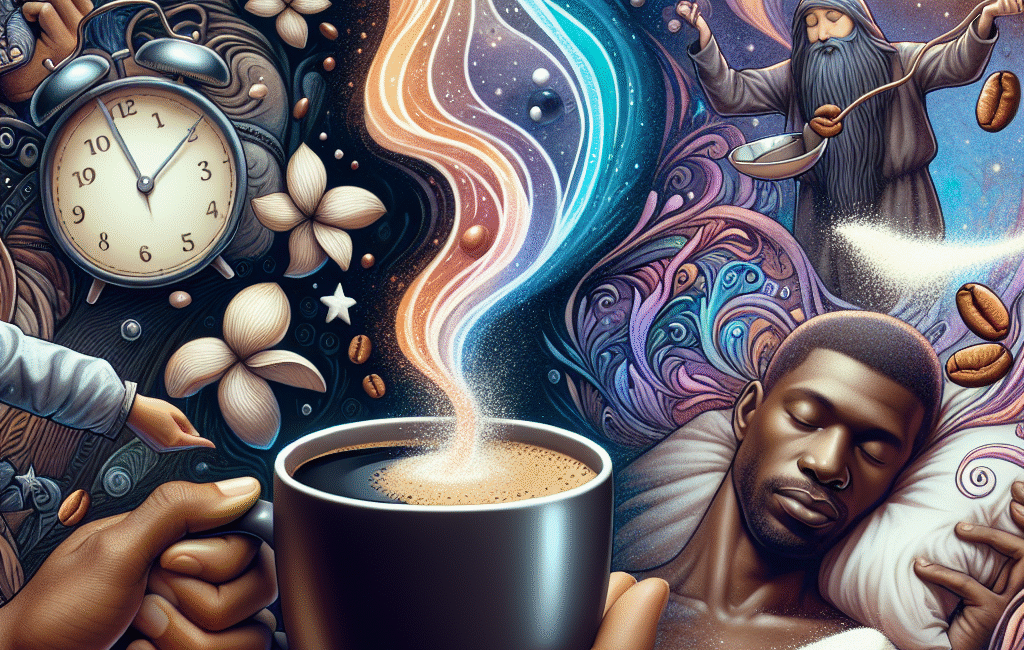
Coffee and Sleep: Understanding the Effects of Caffeine on Rest
Coffee, one of the most beloved beverages worldwide, is a staple in many people’s morning routines. Its rich aroma and robust flavor awaken the senses, while its caffeine content gives us the much-needed boost to tackle our day. However, for those who struggle with sleep, the relationship between coffee and rest can be a complex one. This blog post will explore how caffeine affects sleep, its potential benefits and drawbacks, and tips for enjoying coffee without compromising your sleep quality.
The Science Behind Caffeine
Caffeine is a natural stimulant found in coffee, tea, chocolate, and various energy drinks. It works by blocking the action of adenosine, a neurotransmitter that promotes sleep. By inhibiting adenosine, caffeine increases alertness and reduces the perception of fatigue.
The half-life of caffeine—how long it takes for the body to eliminate half of it—varies among individuals, but it generally ranges from 3 to 7 hours. This means that even after several hours, caffeine can still be circulating in your system, potentially affecting sleep.
The Impact of Caffeine on Sleep
Understanding how caffeine affects sleep is crucial for anyone who enjoys this energizing beverage. Here are the main ways caffeine can impact sleep:
- Delayed Sleep Onset: Consuming caffeine too close to bedtime can make it harder to fall asleep. Studies show that caffeine intake within 6 hours of bedtime can significantly delay the timing of your body’s internal clock.
- Reduced Sleep Duration: Caffeine consumption can lead to shorter sleep durations. Those who consume high amounts of caffeine may find themselves sleeping less than those who abstain.
- Altered Sleep Architecture: Caffeine can disrupt the natural sleep cycle, affecting the amount of deep sleep and REM sleep, both of which are crucial for restorative rest.
- Increased Nighttime Awakenings: Individuals who consume caffeine may experience more frequent awakenings during the night, leading to fragmented sleep.
How Much Caffeine is Too Much?
The amount of caffeine considered safe can vary based on individual tolerance, age, and overall health. However, general guidelines suggest that up to 400 milligrams of caffeine per day (about 4 cups of brewed coffee) is safe for most adults. Pregnant women and individuals with certain health conditions may need to limit their intake further.
It’s essential to be mindful of all sources of caffeine, which can include:
- Espresso and brewed coffee
- Tea (black, green, and some herbal varieties)
- Soft drinks and energy drinks
- Chocolate
- Caffeine pills and supplements
Benefits of Caffeine
Despite its potential downsides regarding sleep, caffeine also offers several benefits that can enhance daily performance and cognitive function:
- Increased Alertness: Caffeine can improve focus and concentration, making it easier to engage in tasks that require mental effort.
- Enhanced Physical Performance: Many athletes use caffeine as a performance enhancer, as it can improve endurance and reduce perceived exertion during workouts.
- Improved Mood: Moderate caffeine consumption is linked to a lower risk of depression and improved overall mood.
Tips for Enjoying Coffee Without Compromising Sleep
If you love coffee but want to ensure a good night’s sleep, consider the following tips:
- Limit Afternoon and Evening Consumption: Try to consume your last cup of coffee by mid-afternoon. This allows your body ample time to metabolize the caffeine before bedtime.
- Choose Lower-Caffeine Alternatives: If you crave a warm beverage later in the day, consider herbal teas or decaffeinated coffee.
- Monitor Your Total Caffeine Intake: Keep track of all sources of caffeine throughout the day to avoid exceeding recommended limits.
- Practice Good Sleep Hygiene: Develop a consistent sleep schedule, create a relaxing bedtime routine, and maintain a comfortable sleep environment to enhance sleep quality.
Conclusion
The relationship between coffee and sleep is nuanced. While caffeine can provide the energy boost needed to tackle the day, it can also interfere with our ability to achieve restful sleep if consumed too close to bedtime. By understanding how caffeine affects our bodies and making mindful choices about when and how much coffee we drink, we can enjoy our favorite beverage without sacrificing the quality of our sleep.
So, whether you’re a committed coffee lover or just a casual drinker, balance is key. Enjoy your cup of joe, but be sure to listen to your body and prioritize your sleep. After all, a well-rested mind is just as important as a caffeinated one!


